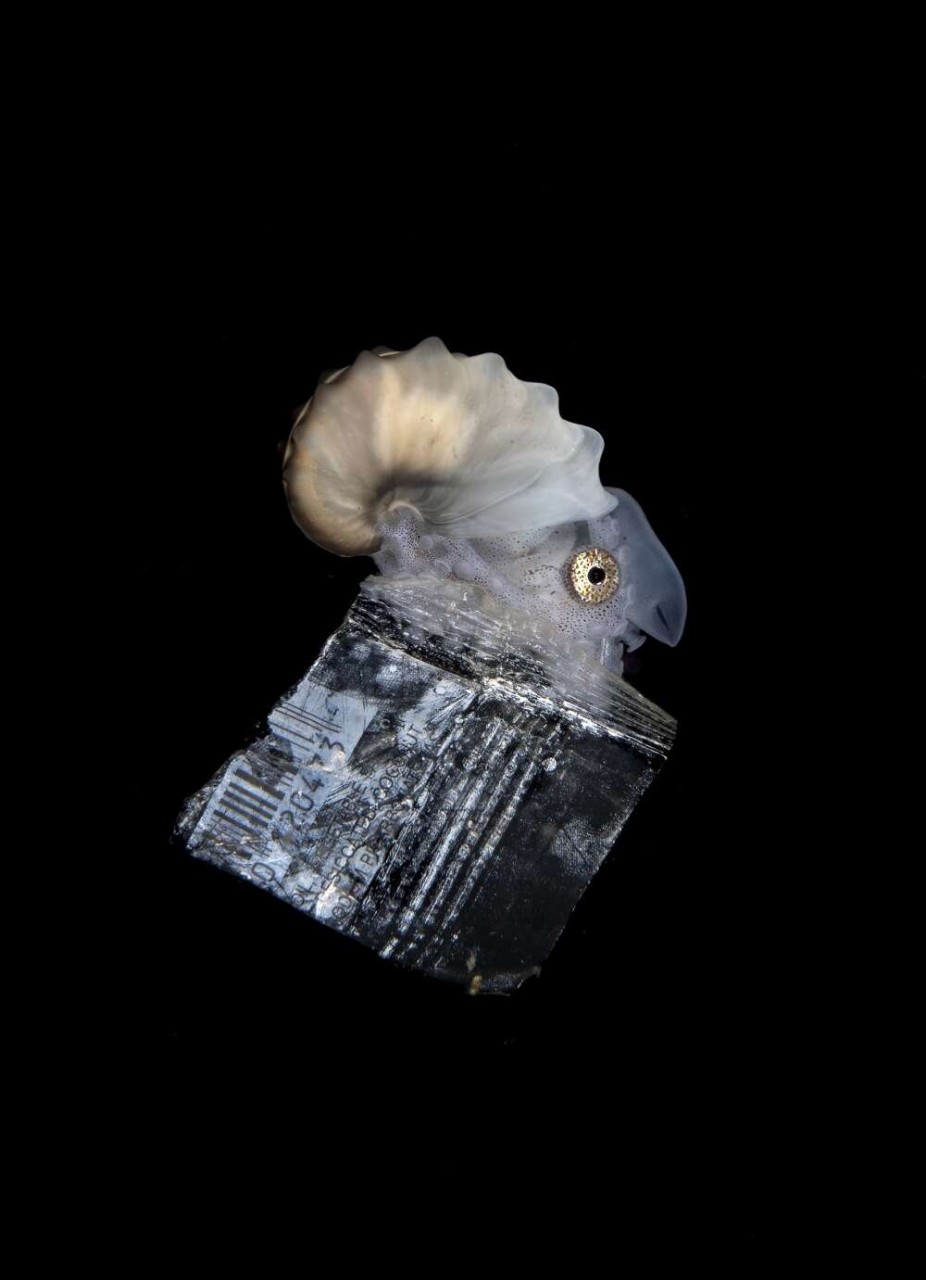It’s no secret that the human race is having a devastating impact on ocean ecosystems, but sometimes it takes just one arresting photograph to really bring the message home. One such image emerged at this year’s Ocean Photography Awards (which had some out-of-this-world entries), as photographer Steven Kovacs presented a photo of a fish curiously gumming a discarded cigarette. While the animal’s slack jaw stuffed with a puff is at first glance quite amusing, it serves as a sobering reminder as to how even small decisions we make can lead to the death of ocean wildlife (even when it looks cool, in the case of the ring-bearing fish). And, when you scale up that impact to the population of the human race, it becomes apparent how pressing it is that we change our ways.
The nicotine-curious fish that stars in the photo is Trachinocephalus myops, known to some as the blunt-nose lizardfish, that’s found in the Atlantic Ocean. These animals spend most of their time on the seabed often with only their eyes emerging from the sand where they sit in wait for fish and crustaceans. Unfortunately, as the photo proves, they’ll jump on just about anything that passes them by.
“This small Snakefish, Trachinocephalus myops, grabbed a cigarette butt out of the water column drifting by in the current thinking it was a fish and began to swallow it for a meal,” wrote Kovacs in an Instagram post about the find. “Even after swallowing more than half of the cigarette, it still hadn't realized its mistake!! This was one situation I felt obliged to intervene since I can't imagine it would have ended well for the fish if it finished swallowing its "meal".”
The smoking fish wasn't Kovac's only entry that centered around human's impact on ocean species. Image credit: Steven Kovacs, Ocean Photography Awards 2021
Intervention among wildlife photographers has long been a topic of contention with no clear rule book as to what is and isn’t appropriate while out in the field. The debate was sparked following a particularly harrowing episode of the BBC Earth landmark series Dynasties, in which the turbulent life of emperor penguins was captured in 4K – a lot of information to take in when it feels as though it’s documenting the back-to-back deaths of penguins, young and old. When a group became trapped on a slope, the crew stepped in to “intervene passively” in digging out an exit to save their lives.
This shot of a dead moray eel on an abandoned fishing line in Bodrum, Turkey, won the Conservation Photography Award. Image credit: Kerim Sabuncuoglu, Ocean Photography Awards 2021
Some have argued that ethics become a moot point when the fatal ingredient is the direct result of human activity. While watching on as a pod of orcas kill a whale calf might be distressing, such a death is a natural part of ocean life whereas allowing an animal to die by ingesting human trash is a fatality of unnatural origin. The issue grows more complicated when dealing with large animals or those that require specialist handlers to free safely, but in the case of one cigarette butt, it seems reasonable to assist the fish in making better decisions (a bit like this octopus who switched their plastic home for something fancier).
Animals that become ensnared in human trash are rarely able to free themselves and often die as a result. Image credit: Henley Spiers, Ocean Photography Awards 2021
Unfortunately, Kovac’s shot was far from alone in capturing wildlife interacting with our garbage. Similarly disheartening but magnificently captured shots showed an eel found dead wrapped in fishing gear, an olive ridley turtle stuck to a buoy, a nautilus hitching a ride on the back of some plastic wrap and, perhaps the most culturally relevant of all, a seahorse clutching a face mask.
